
The unspent millions: how Ukrainian enterprises are reducing their dependency on Russian gas
New modern equipment and the replacement of gas boilers has helped enterprises such as Nibulon and Uniplyt to save millions of dollars and cubic metres of gas annually.
Ukraine remains one of the most energy consuming countries in the world. For many years, artificially low energy prices discouraged authorities and consumers from taking measures to save energy and investing in energy efficiency.
However, the situation has changed dramatically. In order to save costs and to live and work in comfortable conditions, Ukrainians have started insulating their houses and local authorities have begun to invest in energy efficient measures for public establishments. Ukrainian enterprises that are directly dependent on energy sources have also changed their energy consumption habits.
A number of EU-supported programmes help Ukraine to improve their energy efficiency. Most of them provide technical assistance, grants and loans for the implementation of energy saving measures.
The UKEEP programme, which was developed by the European Bank for Reconstruction and Development (EBRD) and is supported by the EU, is one such project which has helped Ukrainian enterprises reduce dependency on gas. Under the UKEEP programme, enterprises which were committed to implementing energy saving measures were able to receive loans from the EBRD. In total, the EBRD provided €180 million for the funding of small and medium enterprises in Ukraine. Funding was provided in the form of loans, which were given to participating banks at market rates. In a short amount of time the enterprises have not only decreased their natural gas consumption, which has helped them save substantial costs, but have also improved their production levels by increasing the quality of their product and work conditions for their employees. Besides, when equipment runs on biofuel, it leads to a decreased negative impact on the environment by cutting down on CO2 emissions.
We visited two enterprises, Nibulon and Uniplyt, who shared with us their experience of introducing energy saving measures and demonstrated their results.
How Ukraine’s largest agrarian company halved their natural gas consumption
Nibulon is one of Ukraine’s largest producers and exporters of agricultural products. The enterprise has a wide network, with 46 branches in 12 regions of Ukraine, and exports more than 4,6 million tonnes of wheat, barley, corn, rye and sunflower seeds per year.
The enterprise uses lifting equipment and machinery for the delivery, drying and transportation of grain, all of which require natural gas for operation.
“Sixteen years ago we realised that on average our lifting machinery consumes three times more energy and water than any modern western enterprise. Our operations were very expensive due to the gas costs. Taking into account this, we could not continue to move backwards in the area of old energy consuming technologies. We were forced to adapt new productive technical solution for energy efficiency” said the technical director of Nibulon, Oleh Pidhorodetskyy. “That is why our aim was to create a more energy efficient technology based on Ukrainian and foreign expertise and implement it with the help of state-of-the-art equipment,” he added.
Natural grain of non-grade humidity is delivered to the company. It is impossible to store it in this condition because it spoils, turns sour and disengages hydrogen. “The basic humidity level that grain can be stored at for years is 14 per cent. Usually, the grains come to the enterprise with a humidity of 20 per cent and corn, for instance, comes at 28-30 per cent humidity. The shelf life of such a product is a few hours. In order for it not spoil, it has to be dried,” said the technical director.
In the past, Nibulon used to dry the grain by heating it to 120 C and quickly cooling it down to room temperature. By using this technology, the corn used to crack due to the substantial drop in temperature, which seriously decreased the quality of the product.
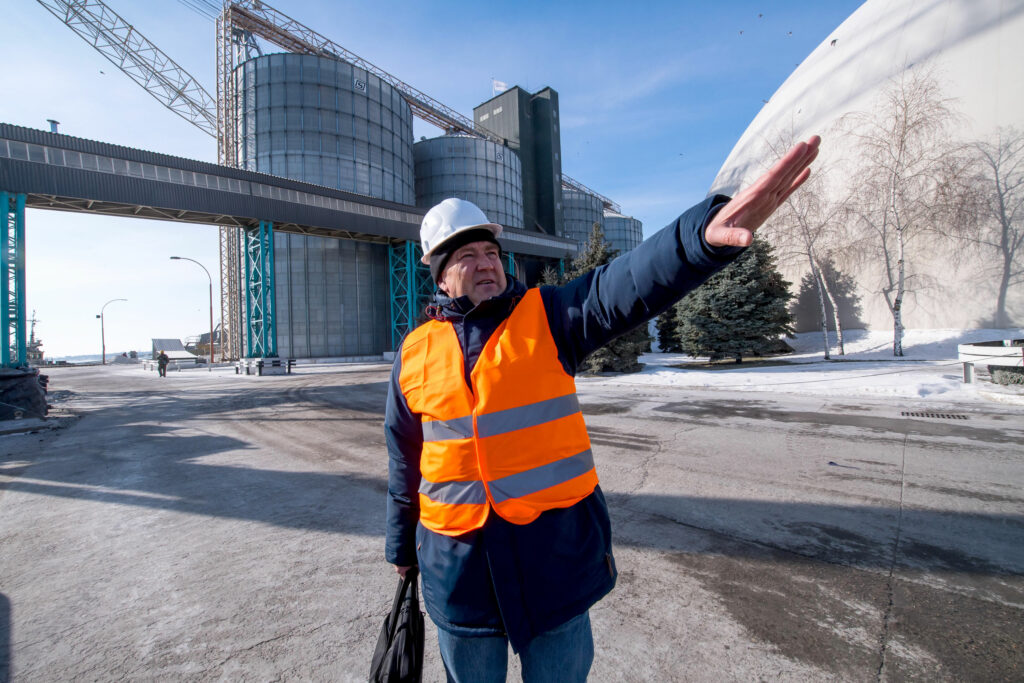 Andriy Arkhipov, Deputy Director of Nibulon
Andriy Arkhipov, Deputy Director of Nibulon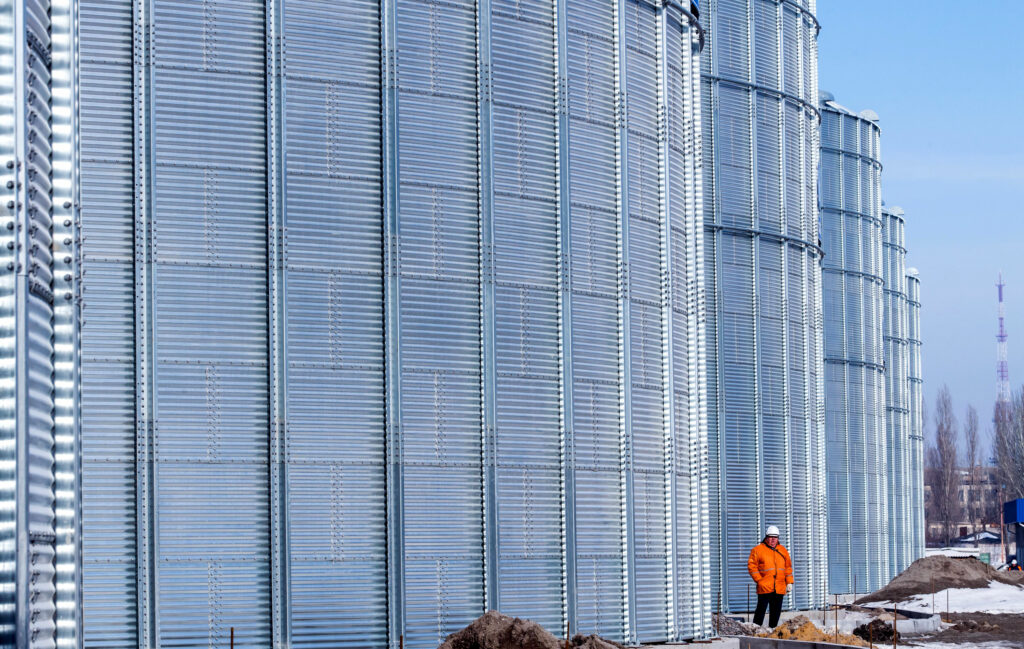 New energy efficient silos at Nibulon, Ukraine
New energy efficient silos at Nibulon, Ukraine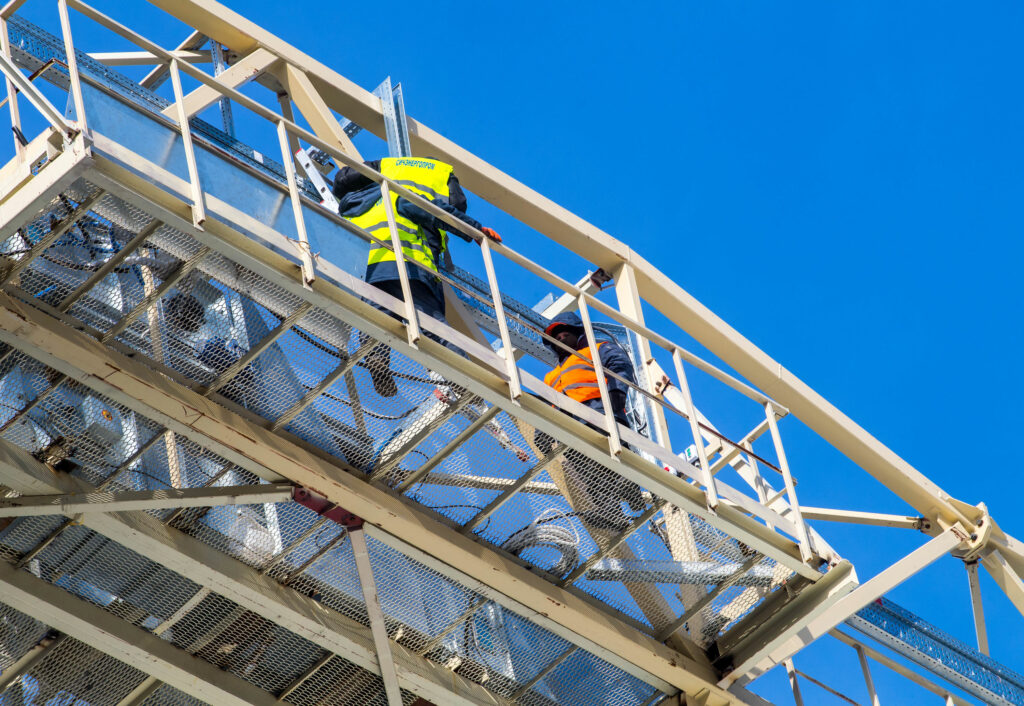 Nibulon premises, Ukraine.
Nibulon premises, Ukraine.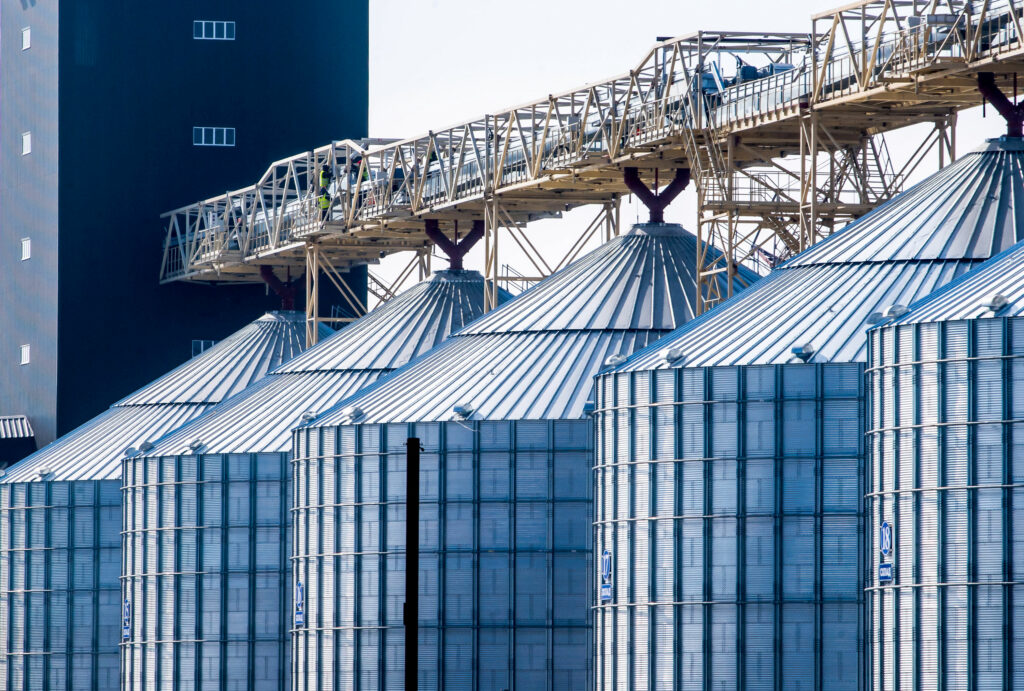 New energy efficient silos at Nibulon, Ukraine
New energy efficient silos at Nibulon, Ukraine
To avoid this effect, Nibulon started using new modern driers. “The grains are heated up to 100 C, but instead of being cooled down they are dried under the milder regimes and are put in the silage without being cooled down. There the temperature is redistributed; the humidity from internal layers of grain goes to the top and is evenly distributed throughout the entire grain. In order to remove humidity, we use an active ventilation system,” the technical director explained.
This method of drying was used by Nibulon in its Mykolayiv branch, but its operation required a great deal of energy resources. As a result, Nibulon became interested in finding new methods of saving energy resources and money.
Having studied their own experience of operating the equipment, and after consultations with Ukrainian scientists, Nibulon developed its own energy efficient grain-drying complex. “We presented our own technology, got it approved and received a loan within the framework of the UKEEP programme,” Oleh Pidhorodetskyy said. “We received over €8 million for the implementation of our project,” he added.
Thanks to the programme, their consumption of gas was cut. “At the moment we use 1.2-1.3 m3 of gas to dry 1 tonne of grain. Old grain driers that we used before implementing the energy saving measures required 2.3 m3. Therefore, we have halved the volume of gas we use in the course of eight years. Clearly, this has led to cost savings on fuel. Just on [gas], we are saving almost €300 thousand (9 million hryvnyas) per year,” said Andriy Arkhypov, deputy director of the reloading terminal.
The total energy cost savings reached 15 per cent compared to figures before the energy saving measures were implemented. All Nibulon branches built after 2008 are oriented to energy efficiency and equipped with speed driers.
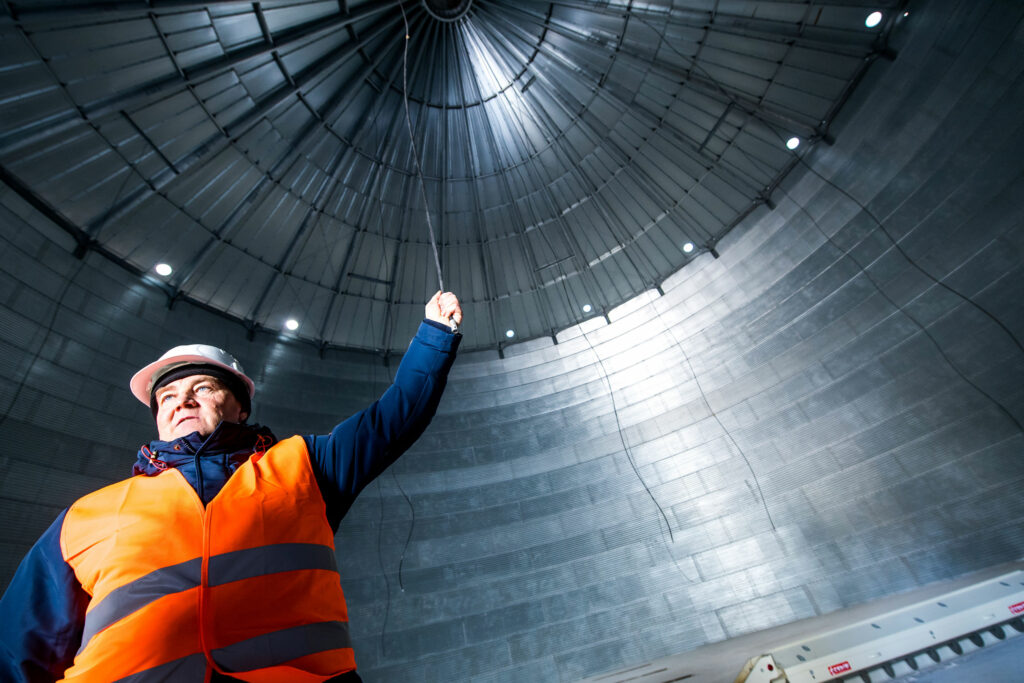 Andriy Arkhipov, Deputy Director demonstrates the humidity level testers
Andriy Arkhipov, Deputy Director demonstrates the humidity level testers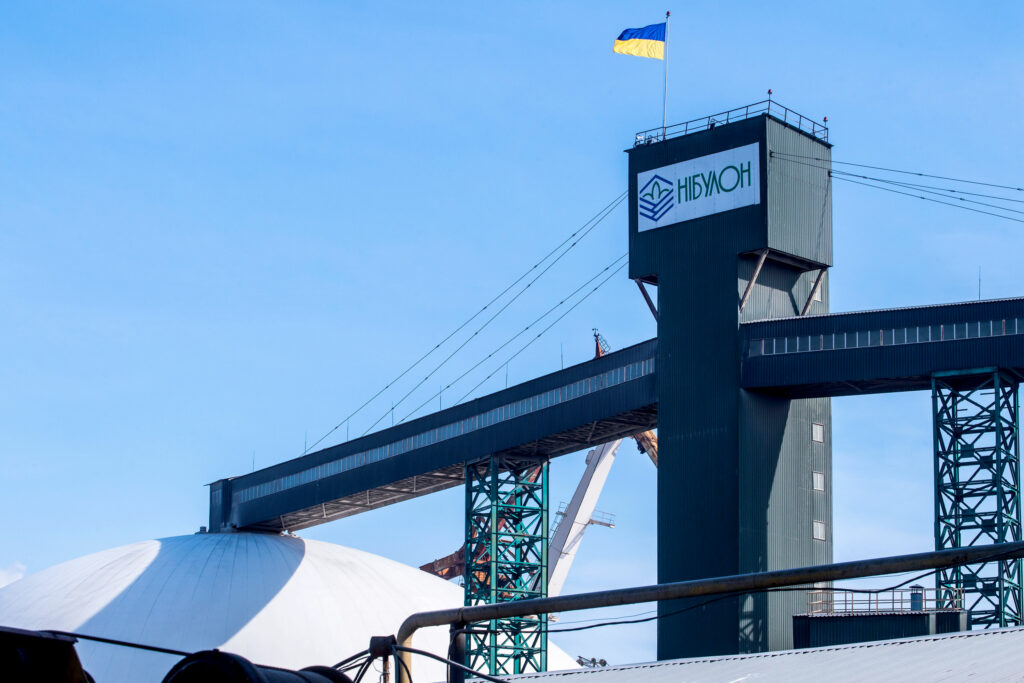 Nibulon premises, Ukraine.
Nibulon premises, Ukraine.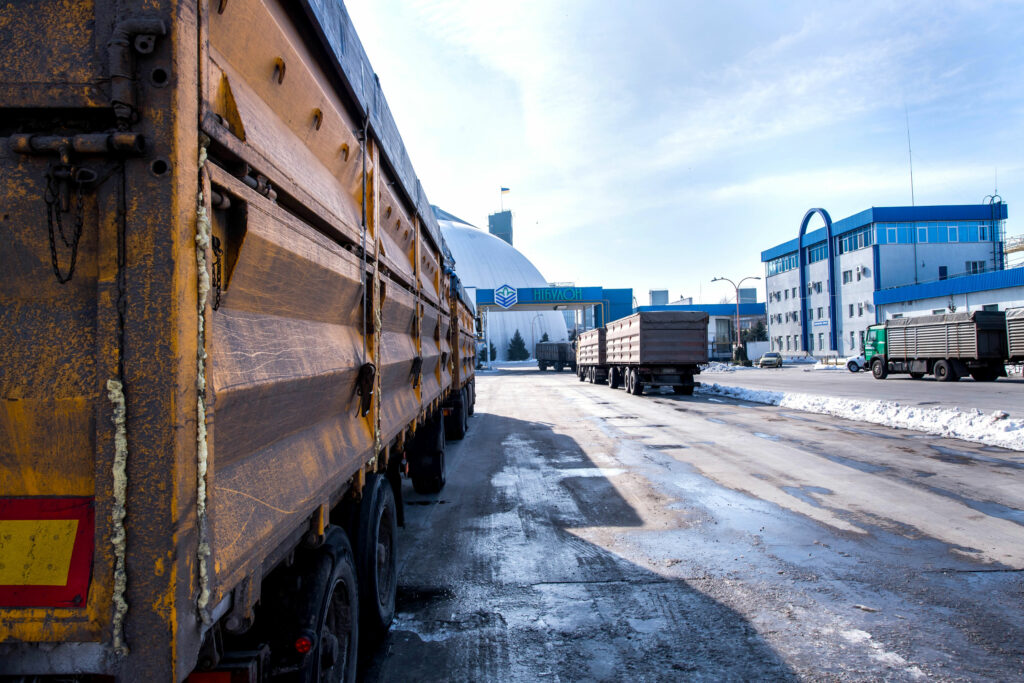 Nibulon premises, Ukraine.
Nibulon premises, Ukraine.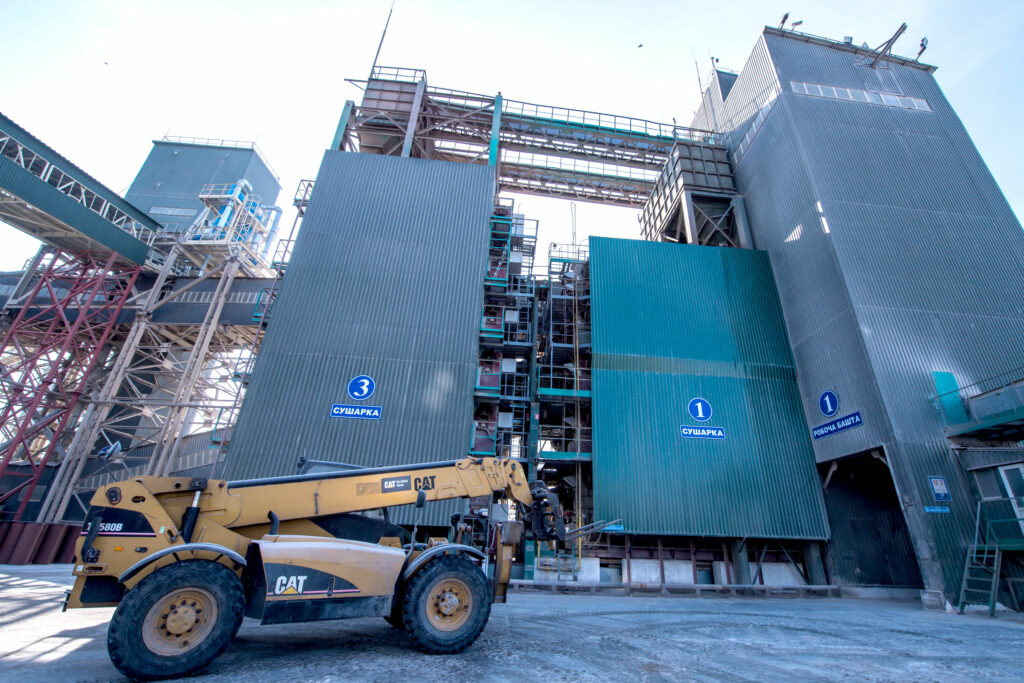 New energy efficient silos at agricultural company Nibulon, Ukraine
New energy efficient silos at agricultural company Nibulon, Ukraine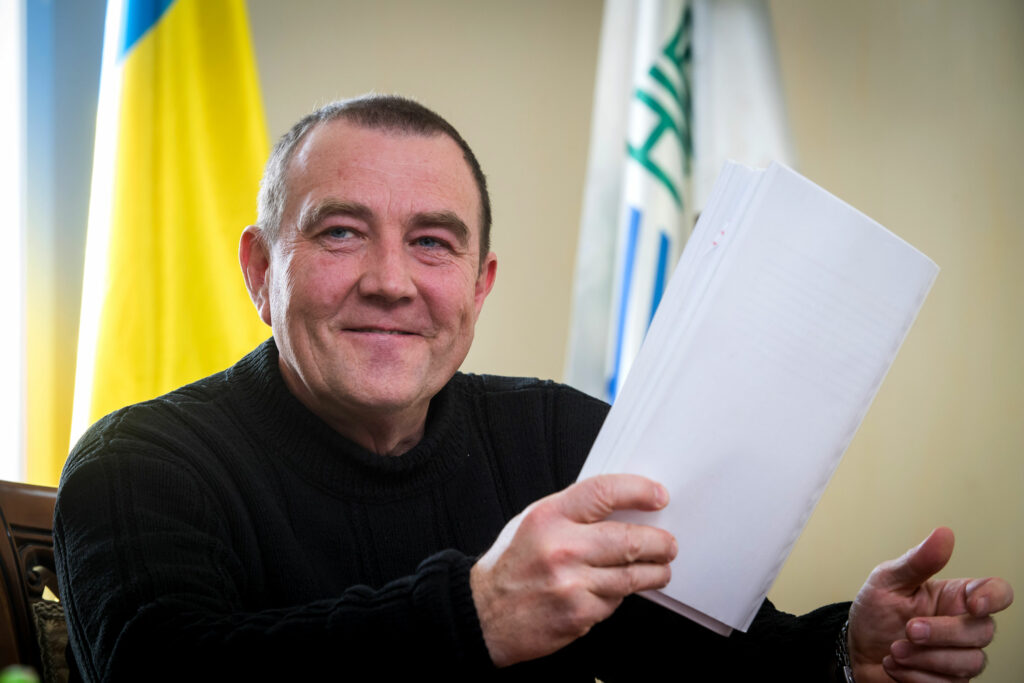 Andriy Arkhipov, Deputy Director, Nibulon, Ukraine
Andriy Arkhipov, Deputy Director, Nibulon, Ukraine
Decreasing the dependence on natural gas has reduced the negative influence on the atmosphere. CO2 emissions decreased by almost 18,000 tonnes per year, which is equivalent to the annual emission of CO2 from 8,000 cars.
Thanks to the UKEEP programme, the new equipment has also made the job of Nibulon workers easier. “We used to have seven thermal zones in our grain drier. The operator had to go to the drier and manually change the temperature, as well as the gas and air supply. He had to run all over the plant in all weather conditions. Now this process is automated, which substantially simplifies the work,” said Andriy Arkhypov.
How using production waste helps Uniplyt save €500,000 per year
Uniplyt is the leader in woodworking industry in Ukraine. The enterprise specialises in the production of fibreboard, plywood and pre-cut timber. 70 per cent of Uniplyt’s products are exported to the EU and neighbouring countries.
Until 2006, all Uniplyt plants used natural gas in their operations. “When gas prices soared in Ukraine, we realised that our competitiveness would fall as the cost of production rises,” said Yuriy Dubas, deputy director at Uniplyt. “We looked at the western markets, where enterprises do not use gas for production but instead use renewable energy sources,” he added.
Having decided to reduce gas dependence, Uniplyt started modernising their production facilities, which increased production and reduced energy costs. “We started reducing our gas consumption and moved towards renewable energy by using waste wood from our own production and from neighbouring enterprises. We decided to replace our gas boilers with new ones,” explained Yuriy Dubas.
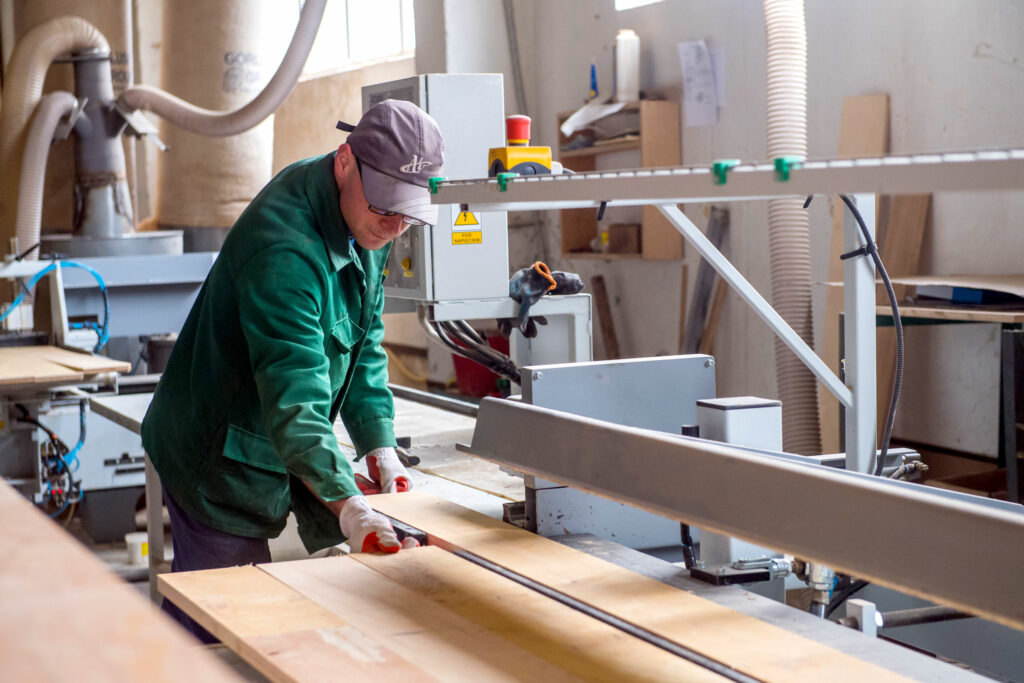 Uniplyt, Ukraine
Uniplyt, Ukraine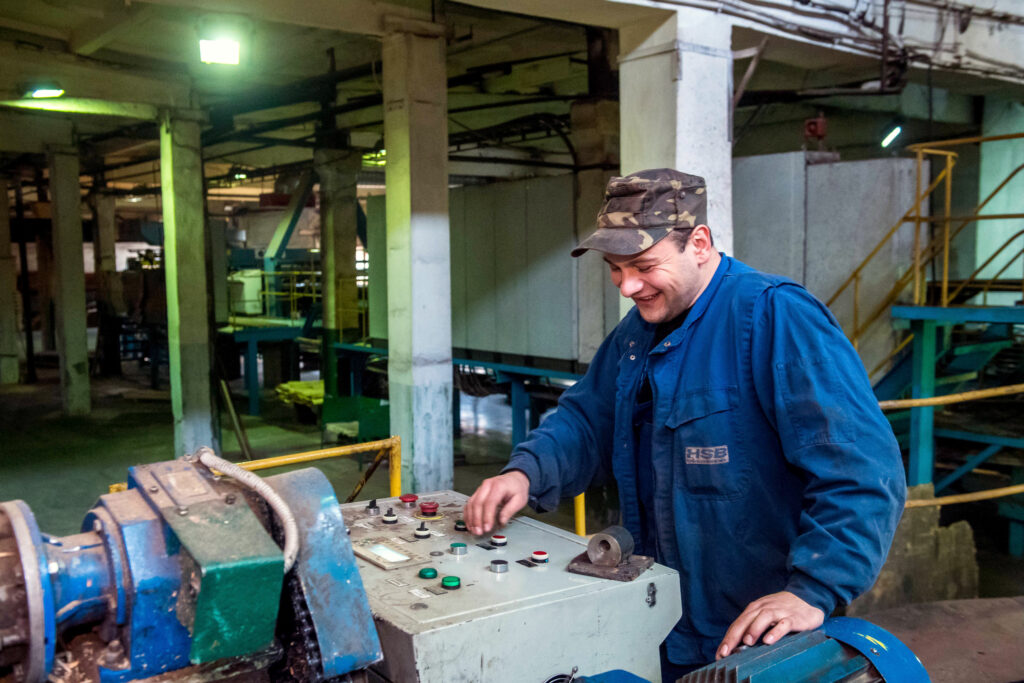 Uniplyt, Ukraine
Uniplyt, Ukraine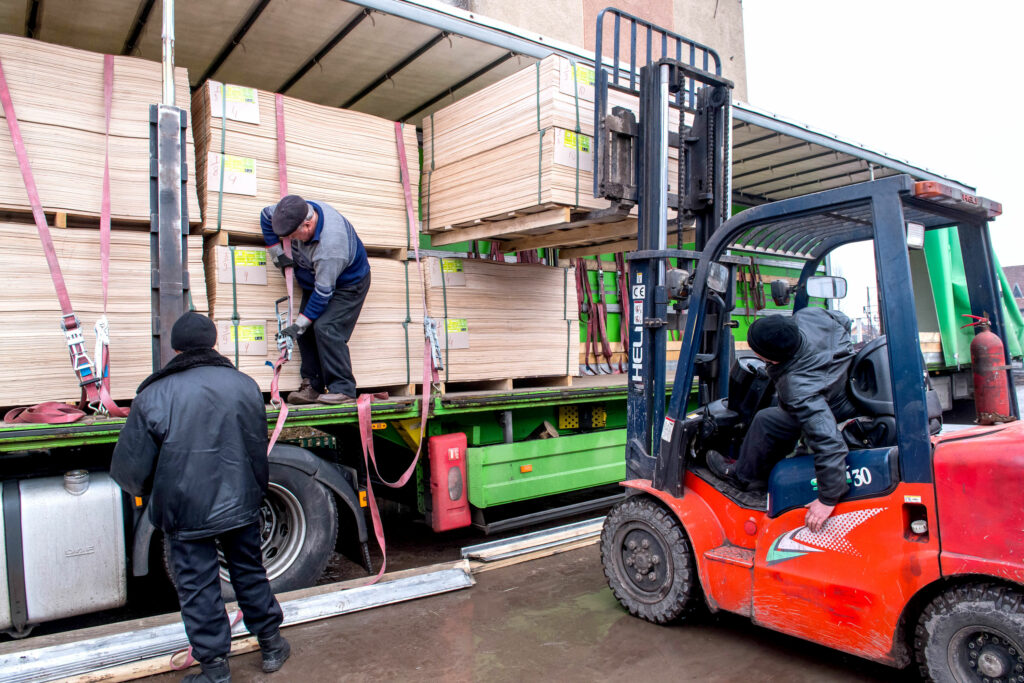 Uniplyt, Ukraine
Uniplyt, Ukraine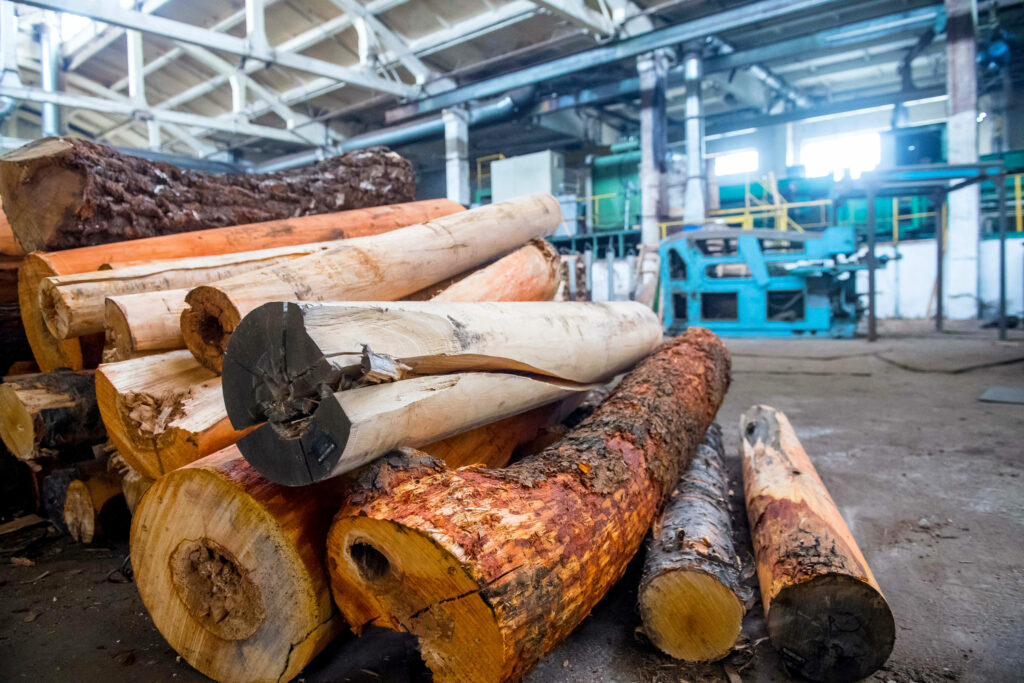 Uniplyt, Ukraine
Uniplyt, Ukraine
In 2006, Uniplyt started cooperating with Ukreximbank, one of the partner banks of the UKEEP programme. In order to be granted the loan, the enterprise had to meet the criteria of the UKEEP programme. The borrowed money had to be spent on increasing the energy efficiency or energy independence of the enterprises.
“With the help of the UKEEP programme we decided to modernise plywood production in the Dzvynyach branch. We replaced the drier and the reequipped the boiler room, which provides the drier with heat. The drier is used in the veneer production process, and used to operate on natural gas, consuming approximately 3 million m3 of gas per year. Under the UKEEP project we bought another drier and installed a heat generator that works on large quantities of wood waste,” the financial director explained.
In total, Uniplyt spent €1.2 million on the implementation of the project, of which €800,000 came from a loan from UKEEP. “We do not speak about cost savings with regards to our energy savings achievements, although, naturally, we made considerable savings. In five years, we saved about €200,000 euros. However, most importantly we received a lump sum of money quickly, which meant we were able to implement the project rapidly and ensure a return of investments. We started implementing the UKEEP project at our enterprise in autumn 2011 and we started to operate the new equipment in the first quarter of 2012,” Yuriy Dubas said.
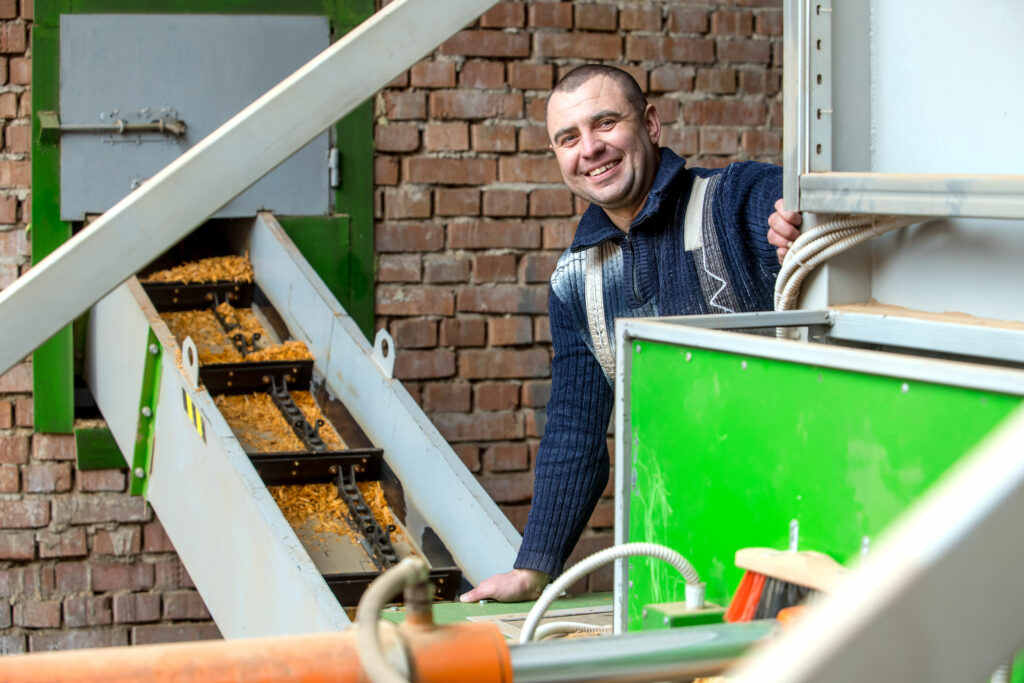 Uniplyt, Ukraine
Uniplyt, Ukraine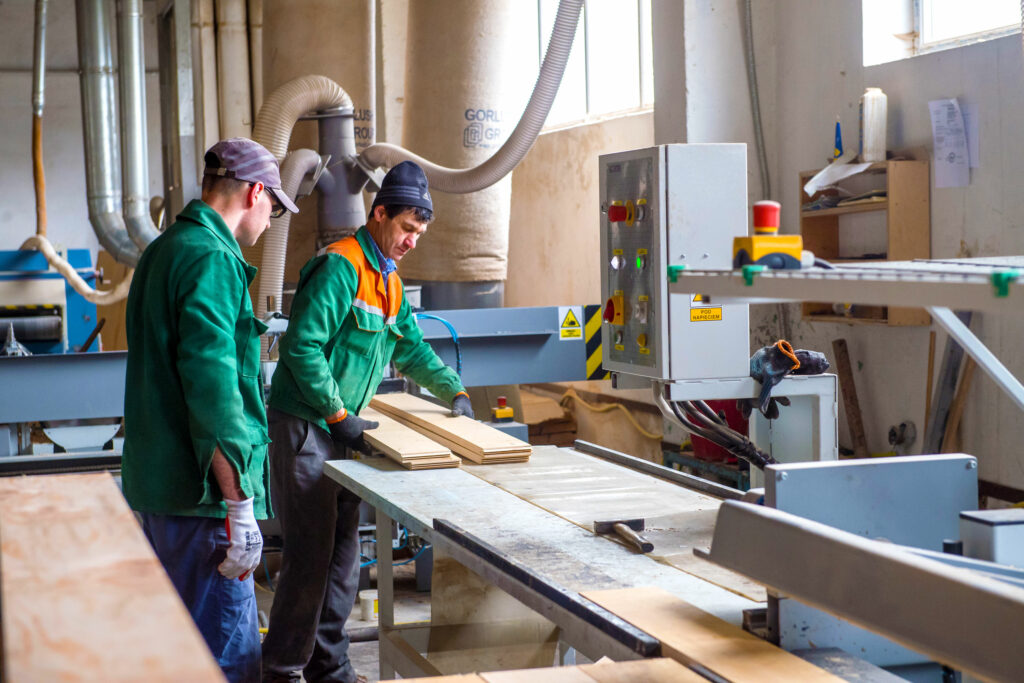 Uniplyt, Ukraine
Uniplyt, Ukraine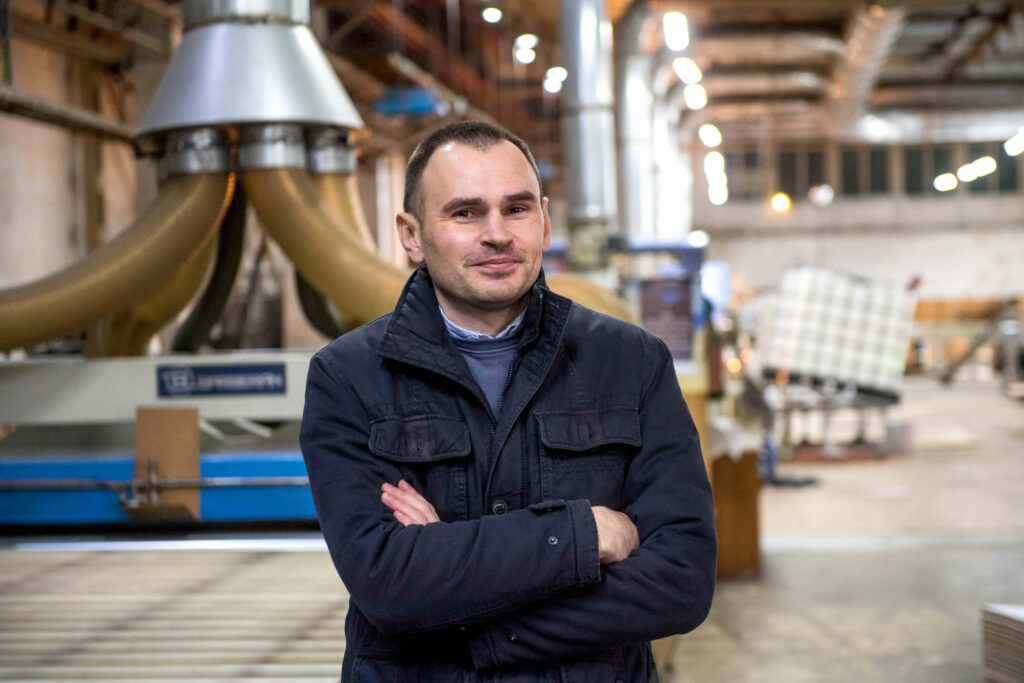 Yuriy Dubas, Deputy Financial Director, Uniplyt, Ukraine.
Yuriy Dubas, Deputy Financial Director, Uniplyt, Ukraine.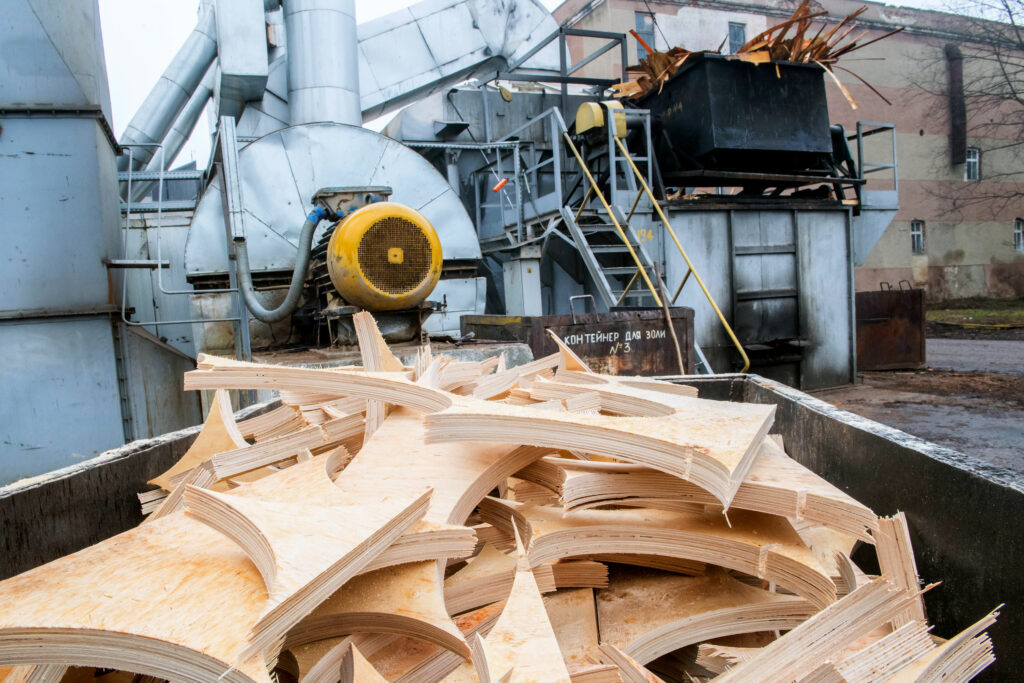 Uniplyt, Ukraine
Uniplyt, Ukraine
“On average, using biofuel is about four times cheaper than using gas. At the moment, using gas is cost prohibitive in any industry. Had we continued to operate on gas, our enterprise would have been unprofitable. We would have to spend everything we make on buying gas, because it is impossible to cover the cost of fuel with such a high volume of consumption. For us, this investment was timely and successful,” said Yuriy Dubas.
Now, all Uniplyt’s branches save about 15 million m3 of gas per year. “We save about €400,000 just on plywood production in Dzvynyach. Before, the branch in Vyhoda used 10 million of m3 of gas annually, so we are making additional savings of €1.6 million per year. These savings are significant. Moreover, without having moved from gas to biofuel, the enterprises would cease to exist since they wouldn’t be competitive on the market,” Yuriy Dubas explained.
Equipment modernisation positively influenced the production
“Now our production process is part of a circular economy and we produce environmentally friendly fuel in the form of briquettes. One of the raw materials used to make them is alder. Alder has long been considered a precious fuel because it produces the least amount of ash,” explained Oleh Petrushka, the enterprise’s leading heating engineer.
Just a few years ago, the issue of waste utilisation was a significant problem. Nobody wanted to buy waste, the value was too low and transporting was too costly.
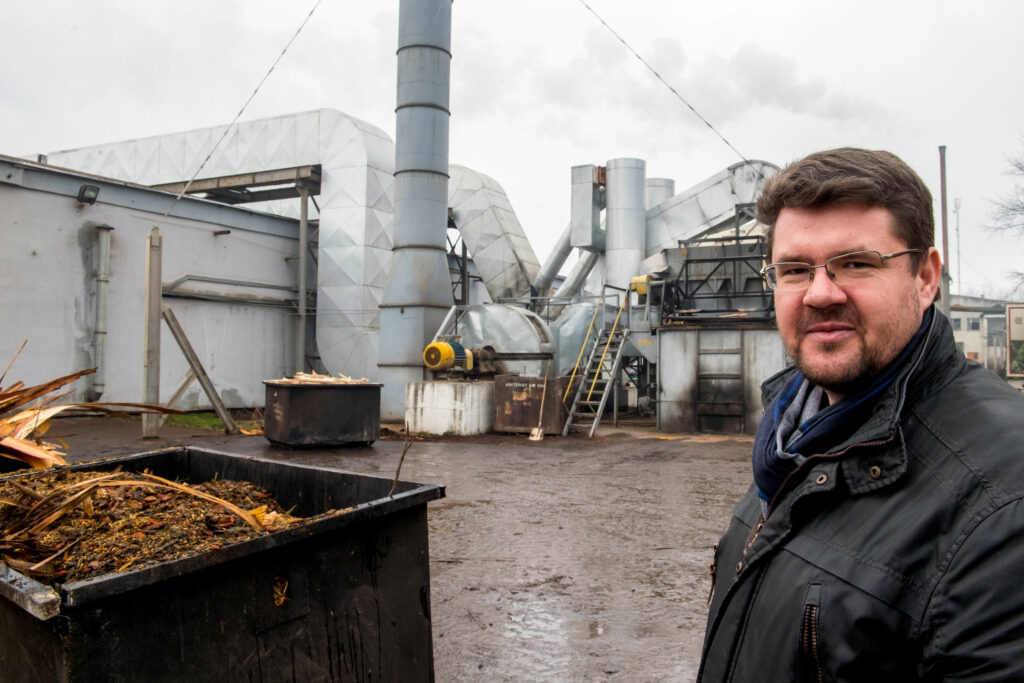 Mykola Grechanyuk, Director of the Dzvynyach branch of Uniplyt, Ukraine.
Mykola Grechanyuk, Director of the Dzvynyach branch of Uniplyt, Ukraine.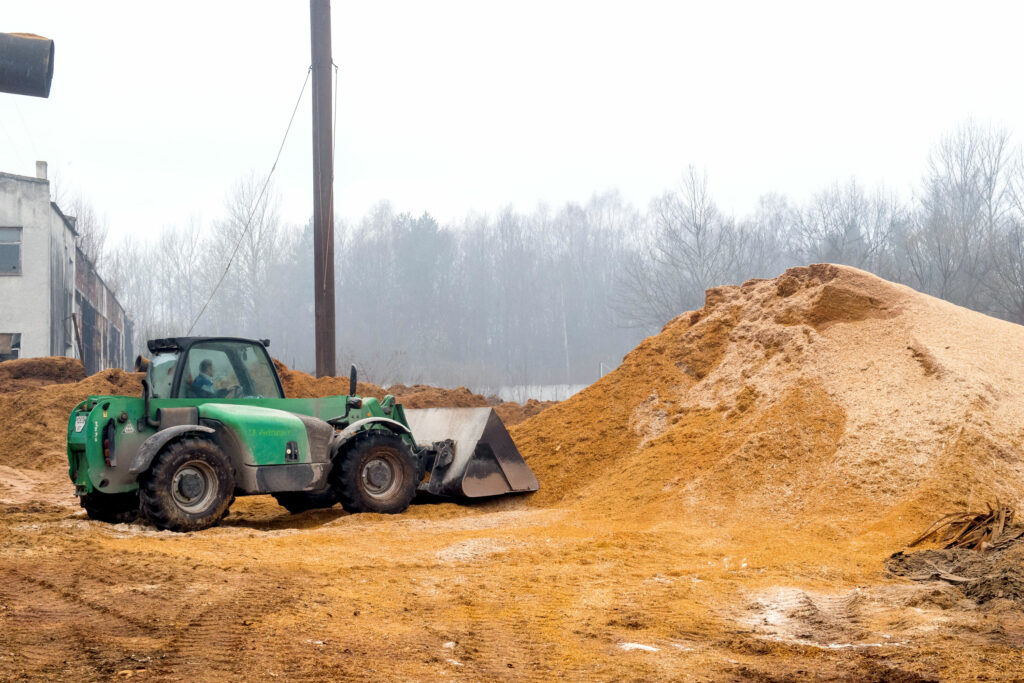 Uniplyt, Ukraine
Uniplyt, Ukraine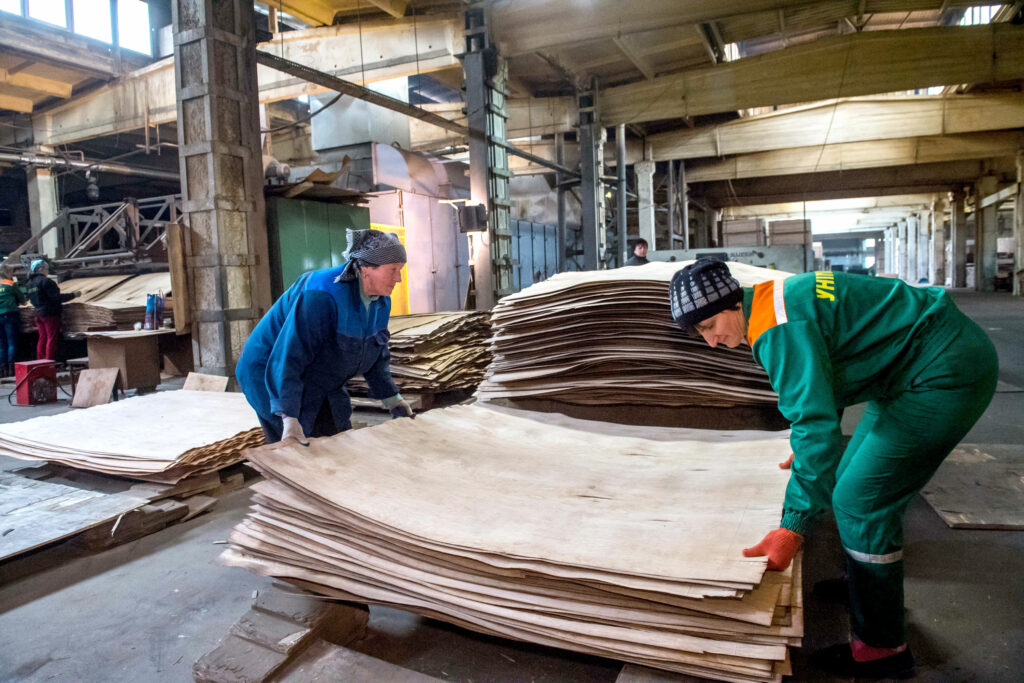 Uniplyt, Ukraine
Uniplyt, Ukraine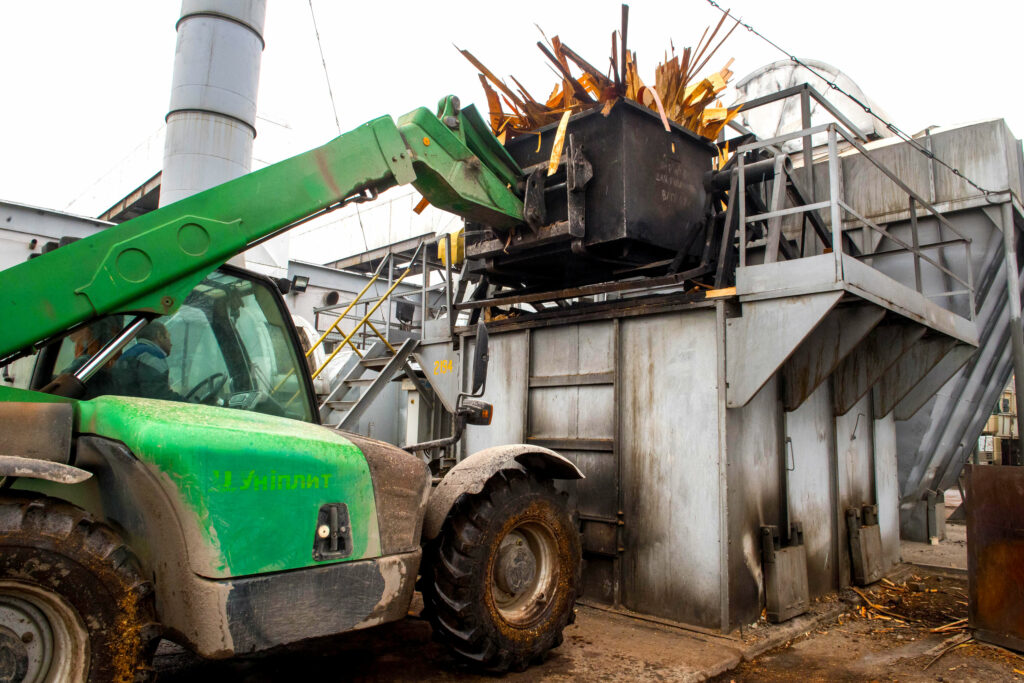 Uniplyt, Ukraine
Uniplyt, Ukraine
“We are producing about 80 tonnes of briquettes from the wood waste. We also eliminated the expense of transporting waste,” said the director of Uniplyt’s Dzvynyach branch, Mykola Hrechanyuk.
In addition to helping the enterprise reduce its gas dependence, the UKEEP programme provided technical expertise to Uniplyt. “Specialists in the field of energy efficiency provided us with expertise in terms of choosing the equipment, conducting a general energy audit of the enterprise, and providing insight into where and how we could take measures to decrease energy costs,” explained Yuriy Dubas. “This programme not only allowed us to benefit from the loan, but also provided us with valuable advice which later helped us to implement energy saving measures,” he concluded.
Author: Darya Tarasova
Article published in Espresso.tv in Ukrainain
MOST READ
SEE ALSO

‘The Kremlin has entered the chat’: how to protect your personal data on Telegram and avoid the bait of propaganda

No, time is not on Russia‘s side
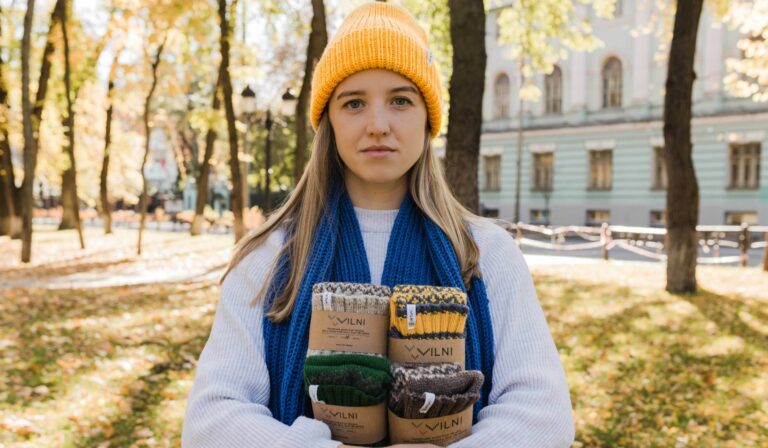
Socks for Peace: how the Vilni project is supporting internally displaced women in Ukraine
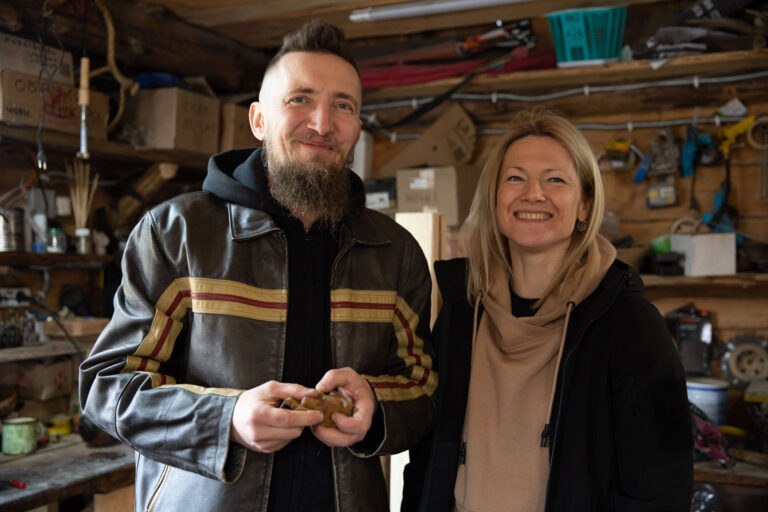
Celebrating traditional Ukrainian cultural identity in Rivne

Natalia wanted her child to escape the war: how a single mother set up a successful business in Lithuania
More campaign pages:
Interested in the latest news and opportunities?
This website is managed by the EU-funded Regional Communication Programme for the Eastern Neighbourhood ('EU NEIGHBOURS east’), which complements and supports the communication of the Delegations of the European Union in the Eastern partner countries, and works under the guidance of the European Commission’s Directorate-General for Neighbourhood Policy and Enlargement Negotiations, and the European External Action Service. EU NEIGHBOURS east is implemented by a GOPA PACE-led consortium. It is part of the larger Neighbourhood Communication Programme (2020-2024) for the EU's Eastern and Southern Neighbourhood, which also includes 'EU NEIGHBOURS south’ project that runs the EU Neighbours portal.

The information on this site is subject to a Disclaimer and Protection of personal data. © European Union,








